The debate about the handling and storage of fresh eggs from backyard chickens is alive and well. I could present you with the history of egg sanitation practices in the United States and Europe or detail the many conflicting opinions among poultry professionals about how or whether freshly laid eggs should be handled, and I could bore you with the advantages and disadvantages of each position, but I’m not going to because scientific studies supporting each position can be found on both sides of the Atlantic ocean. If food safety experts disagree about egg washing and storage conditions, how is a backyard chicken keeper to decide what’s safer short of flipping a coin?
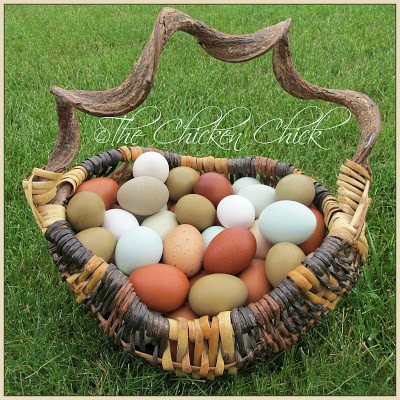
Understanding Salmonella Risks
Salmonella from shell eggs is transmitted to people primarily as the result of an egg yolk that was infected with Salmonella enteritidis inside the hen’s ovary, not on the eggshell. Regardless of egg handling or freshness, there is always a risk of Salmonella contaminating chicken eggs and the only way to avoid food poisoning is to cook eggs thoroughly (160°F or 71°C)
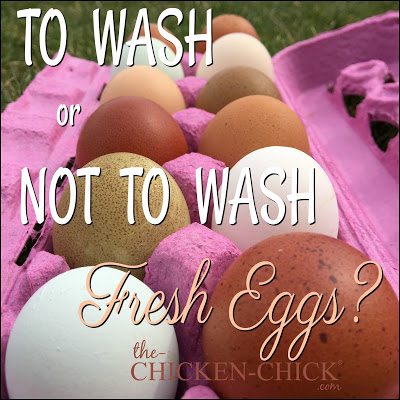
How you handle and store fresh eggs is then primarily one of personal risk tolerance. How much risk are you willing to take with your food-borne illness and your health? The answer to that question is only one you can answer. Another consideration in egg handling is your feeling about old eggs. How many of the characteristics of a fresh egg do you wish to preserve?
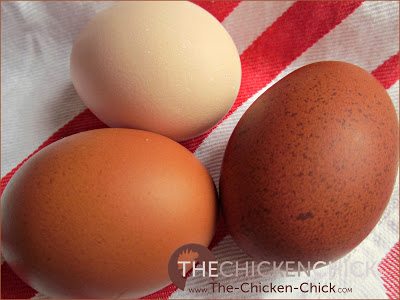
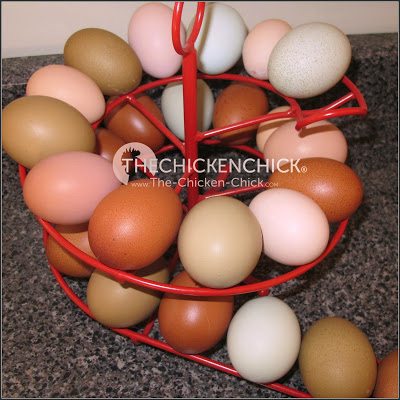
A hen coats each eggshell with a protective layer of fast-drying liquid known as the bloom or cuticle. The bloom’s primary purpose is to protect a potential embryo from contamination so it can develop into a chick. If the bloom is washed off, bacteria can more easily penetrate the porous shell, compromising the egg’s contents, and the embryo’s development. If an egg is intended for use in the kitchen the contents of the eggshell benefit to some degree from an intact bloom. But the bloom is not made of Teflon and will degrade over time. The older an egg, the more time bacteria has to work its way in through eggshell pores. Generally speaking, the warmer the environment, the faster bacteria can grow.
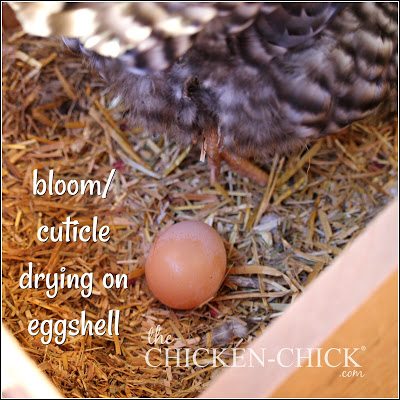
MY EGG HANDLING SAFETY PHILOSOPHY
- It is safer to maintain nest-box sanitation than allow eggs to be laid in filthy nests.
- It is safer to use fresh eggs promptly rather than allow them get old and degrade in quality and safety.
- It is safer to store clean eggs in the refrigerator rather than on the kitchen counter where they will degrade an estimated seven times faster in safety and quality.
- It is safer not wash clean eggs than to wash them because washing removes the protective bloom the hen applied to the shell to keep bacteria out.
- It is safer not consume eggs that have been soiled with chicken poop than to risk cleaning them in a way that may drive bacteria through the shell’s approximately 7,000 pores.
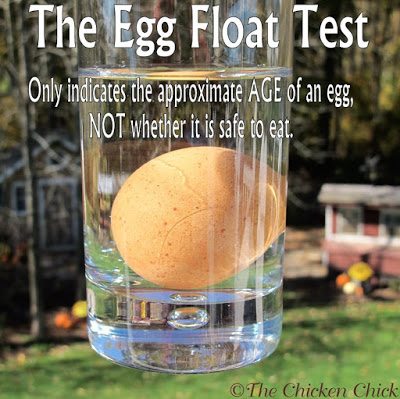
THE BOTTOM LINE
The safest course of action is to use fresh eggs while they are still fresh or refrigerate them. What’s fresh? I err on the safe side and keep them out on the counter in temperatures not exceeding 70°F no longer than 2 weeks. Some eggs can be stored safely longer but there is no way of knowing which ones are counter-top Petri dishes.
The egg float test does NOT indicate whether an egg is safe to eat- it only offers an approximate age of an egg. Learn what makes this true in this article.
If you sell your backyard hens’ eggs, there are likely regulations addressing their handling in your jurisdiction. Contact your state’s department of agriculture for guidance.
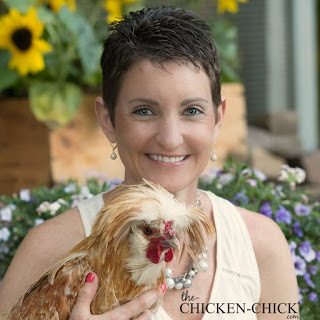
Kathy Shea Mormino
Affectionately known internationally as The Chicken Chick®, Kathy Shea Mormino shares a fun-loving, informative style to raising backyard chickens. …Read on


shop my SPONSORS
The debate about the handling and storage of fresh eggs from backyard chickens is alive and well. I could present you with the history of egg sanitation practices in the United States and Europe or detail the many conflicting opinions among poultry professionals about how or whether freshly laid eggs should be handled, and I could bore you with the advantages and disadvantages of each position, but I’m not going to because scientific studies supporting each position can be found on both sides of the Atlantic ocean. If food safety experts disagree about egg washing and storage conditions, how is a backyard chicken keeper to decide what’s safer short of flipping a coin?

Understanding Salmonella Risks
Salmonella from shell eggs is transmitted to people primarily as the result of an egg yolk that was infected with Salmonella enteritidis inside the hen’s ovary, not on the eggshell. Regardless of egg handling or freshness, there is always a risk of Salmonella contaminating chicken eggs and the only way to avoid food poisoning is to cook eggs thoroughly (160°F or 71°C)

How you handle and store fresh eggs is then primarily one of personal risk tolerance. How much risk are you willing to take with your food-borne illness and your health? The answer to that question is only one you can answer. Another consideration in egg handling is your feeling about old eggs. How many of the characteristics of a fresh egg do you wish to preserve?


A hen coats each eggshell with a protective layer of fast-drying liquid known as the bloom or cuticle. The bloom’s primary purpose is to protect a potential embryo from contamination so it can develop into a chick. If the bloom is washed off, bacteria can more easily penetrate the porous shell, compromising the egg’s contents, and the embryo’s development. If an egg is intended for use in the kitchen the contents of the eggshell benefit to some degree from an intact bloom. But the bloom is not made of Teflon and will degrade over time. The older an egg, the more time bacteria has to work its way in through eggshell pores. Generally speaking, the warmer the environment, the faster bacteria can grow.

MY EGG HANDLING SAFETY PHILOSOPHY
- It is safer to maintain nest-box sanitation than allow eggs to be laid in filthy nests.
- It is safer to use fresh eggs promptly rather than allow them get old and degrade in quality and safety.
- It is safer to store clean eggs in the refrigerator rather than on the kitchen counter where they will degrade an estimated seven times faster in safety and quality.
- It is safer not wash clean eggs than to wash them because washing removes the protective bloom the hen applied to the shell to keep bacteria out.
- It is safer not consume eggs that have been soiled with chicken poop than to risk cleaning them in a way that may drive bacteria through the shell’s approximately 7,000 pores.

THE BOTTOM LINE
The safest course of action is to use fresh eggs while they are still fresh or refrigerate them. What’s fresh? I err on the safe side and keep them out on the counter in temperatures not exceeding 70°F no longer than 2 weeks. Some eggs can be stored safely longer but there is no way of knowing which ones are counter-top Petri dishes.
The egg float test does NOT indicate whether an egg is safe to eat- it only offers an approximate age of an egg. Learn what makes this true in this article.
If you sell your backyard hens’ eggs, there are likely regulations addressing their handling in your jurisdiction. Contact your state’s department of agriculture for guidance.


















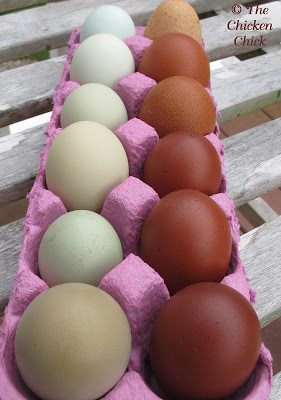











We’d love this for our hens, they make such a mess with their food!
Anticipation levels are high as I await each email from you! Knowledge is power, the more I learn the more I can educate folks!
Thank you for the chance to win!
Love all the great information we are first time chicken parents so much to learn!
Could sure use a new feeder.